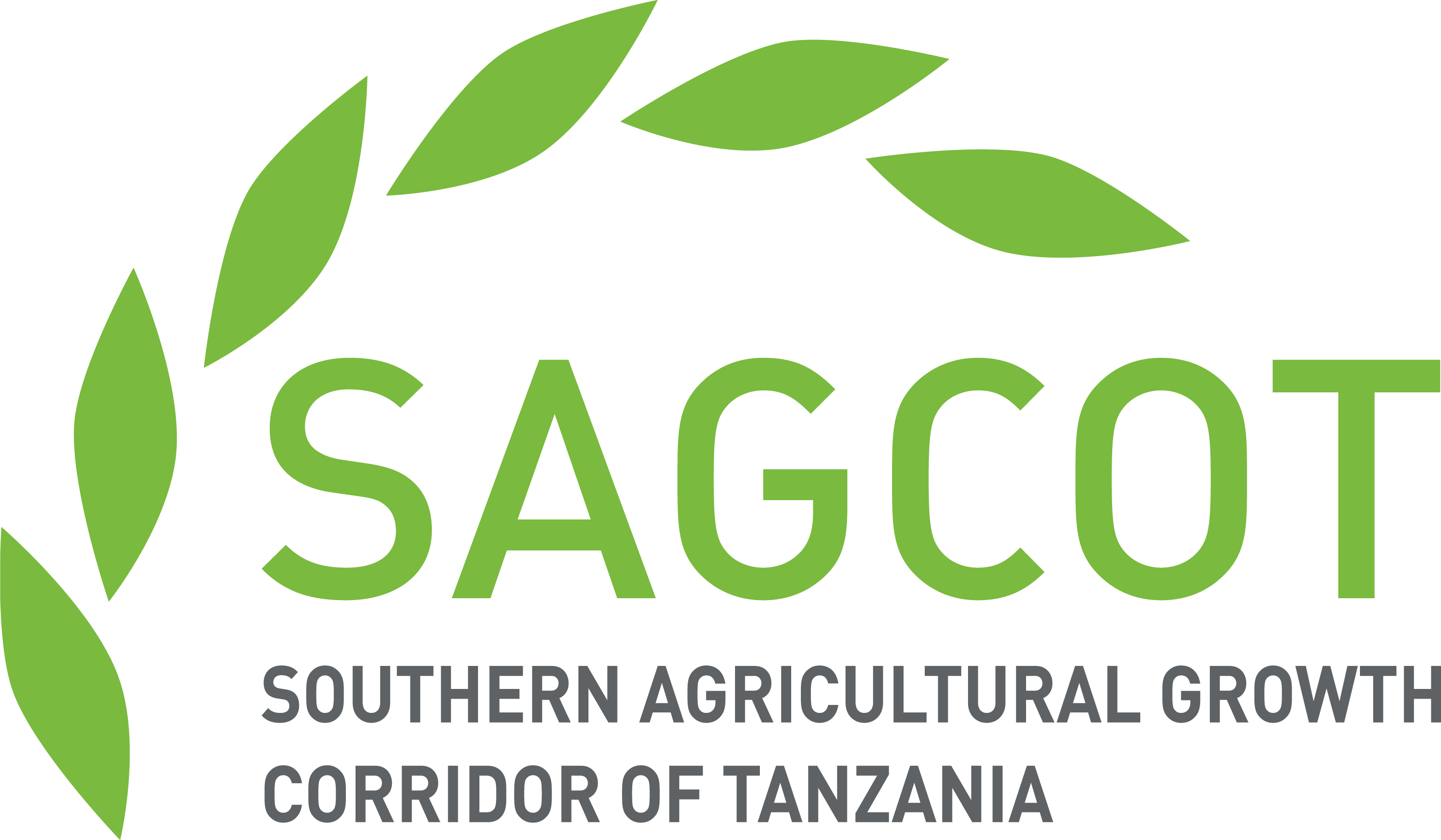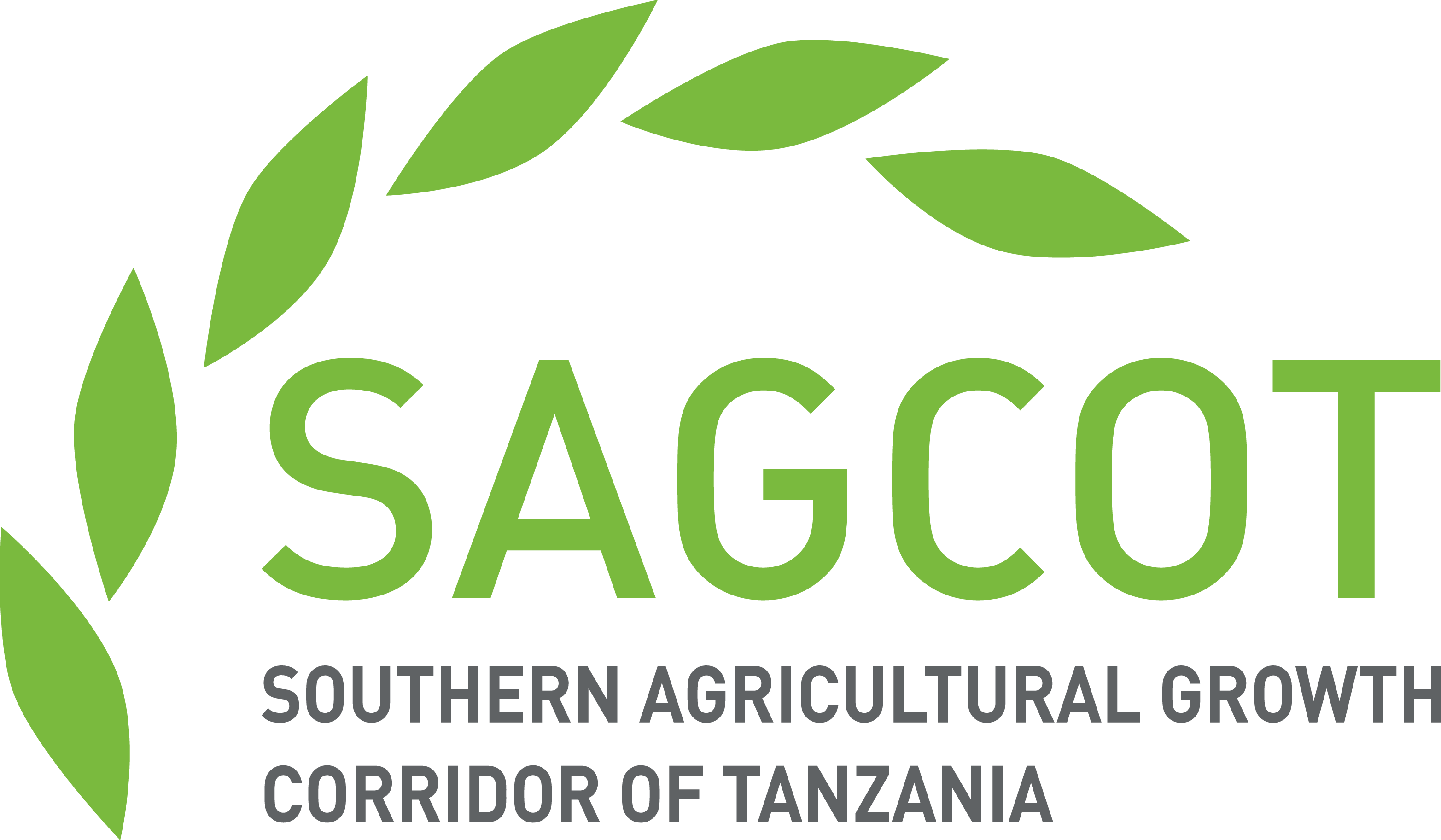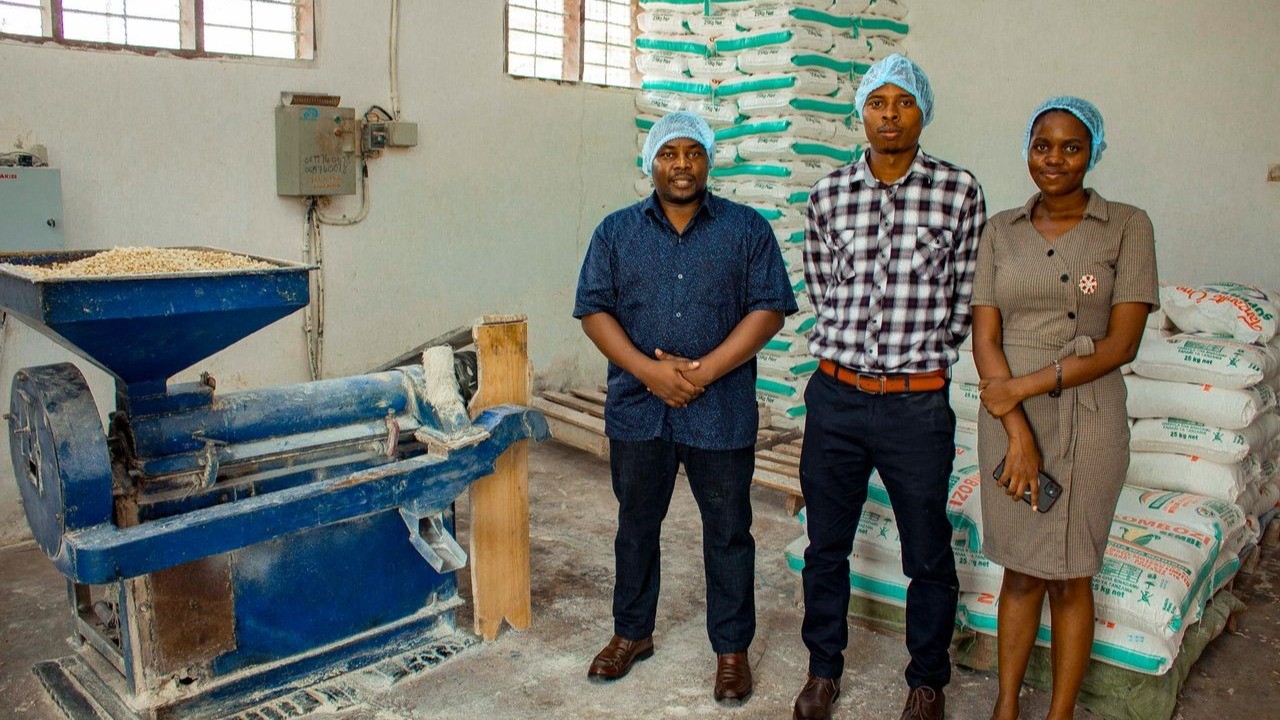On February 12th, SAGCOT in implementing AGRA and MasterCard’s supported Youth Entrepreneurship for the Future of Food and Agriculture (YEFFA) project, spotlighting Nassib Said, an enterprising young entrepreneur based in Morogoro. At just 26 years old, Mr. Said has already made significant strides in the agricultural sector with his company, MOAFRICAN GROUP, which specializes in the processing and packaging of maize. MOAFRICAN GROUP processes approximately 90 tonnes of maize weekly. Beyond simple processing, the company fortifies the maize, enhancing its nutritional value before distribution across various markets. Mr. Said’s business not only fosters innovation in maize processing but also plays a crucial role in youth empowerment by creating employment opportunities for 25 young individuals, fueling economic growth and development in the region.
Translated transcript –
My name is Nassib Said, and my factory is in Morogoro town. What attracted me to this business of milling maize flour is that Tanzania is a major producer of maize. Tanzania itself is a market because people in urban areas do not grow maize; hence, they need this service, which is what attracted me to this business.
The process of maize flour milling first ensures that we obtain high-quality raw materials. These raw materials are purchased directly from farmers from various parts of Tanzania, including Iringa, Mbeya, Njombe, Songea, and Sumbawanga. After purchasing the raw materials, we transport them to Morogoro. Once the maize arrives at the factory, the first process is to clean the maize of any dirt, dust, and other contaminants.
After cleaning, the next process involves moisturizing the maize to ensure it is milled properly. Following this is the milling process, after which we obtain bran and clean-milled maize.
The next process is grinding the maize. Before grinding, we fortify the flour, ensuring that our nutrient machine is equipped with nutrients; then, we begin the grinding process. The final step is packaging and then distributing the product to customers.
I learned the technology of maize processing and milling in Dodoma and Dar es Salaam, Manzese. Major challenges we face during flour processing include sourcing good quality raw materials free of aflatoxin, well-preserved, and properly dried.
Operational challenges include issues such as inconsistent electricity supply, which often leads to losses and market challenges related to customer awareness about nutrient enrichment.
Another challenge is quality control of raw materials because the business operates in two ways: there are factories in urban areas that wait for raw materials to come to town, but for others like us, we go further into the supply chain by buying directly from farmers. We are looking for maize that is not of good quality and hasn’t reached our factory.
First and foremost, I think farmers should receive better training in food preservation so that the maize does not have aflatoxin and comes to us dry because if they start controlling the quality of raw materials there, it becomes easier for us here as the quality of raw materials we receive is reduced.
Another challenge for me is the quality mark, and we are accelerating to obtain a quality mark to reach bigger markets. Another challenge is operational related to electricity, so if we can get support for better infrastructure, it will help protect our production equipment here.
I participated in entrepreneurship training provided by SIDO, the Small Industries Development Organization, which I attended in 2024 in Dar es Salaam, and I also attended processing training held here in Morogoro and other entrepreneurship institutes.
These trainings have helped me a lot; for example, SIDO helped me see that even if your factory is small, you can produce and obtain a quality mark. These entrepreneurship trainings also help you see how you can further develop your business properly.
First, we have a specific plan to find markets, so we go to customers to educate them about the quality and affordability of our products and how we prepare the raw materials, so the affordability we get because of buying directly from farmers is one part that gives us a competitive edge in the market compared to others who get raw materials here in town which are also of lesser quality.
Another thing is that our flour is enriched with nutrients, so many customers prefer to buy healthier flour and reduces diseases associated with nutrient deficiencies.
My business has been able to help farmers in the areas where we operate to get a reliable market, and secondly, it has helped my fellow youth whom we employ in both direct and indirect jobs here, I am with my fellow youth who have gotten jobs that have been able to help them economically manage their daily needs. Another benefit is that when we buy crops, we pay the appropriate taxes and duties, all of which contribute to the national income.
Long-term goals are to reach more customers and increase production from Morogoro to other regions like Dar es Salaam and other regions.
I advise my fellow youth on the side of farming before coming to production; farming pays, but stories have been that farming is troubling and doesn’t do well, but farming pays if you have firm goals and can follow up and properly manage your farm, farming pays, and it’s an easy place if you have a little capital you can start farming. Also, this chain from farming to reaching here has many opportunities; we buy raw materials and bring them to town, so the youth shouldn’t be afraid. Opportunities are there, and the government is also their stakeholder they see you if you are doing well. They help you from one place to another, so youth should participate in entrepreneurship. End




